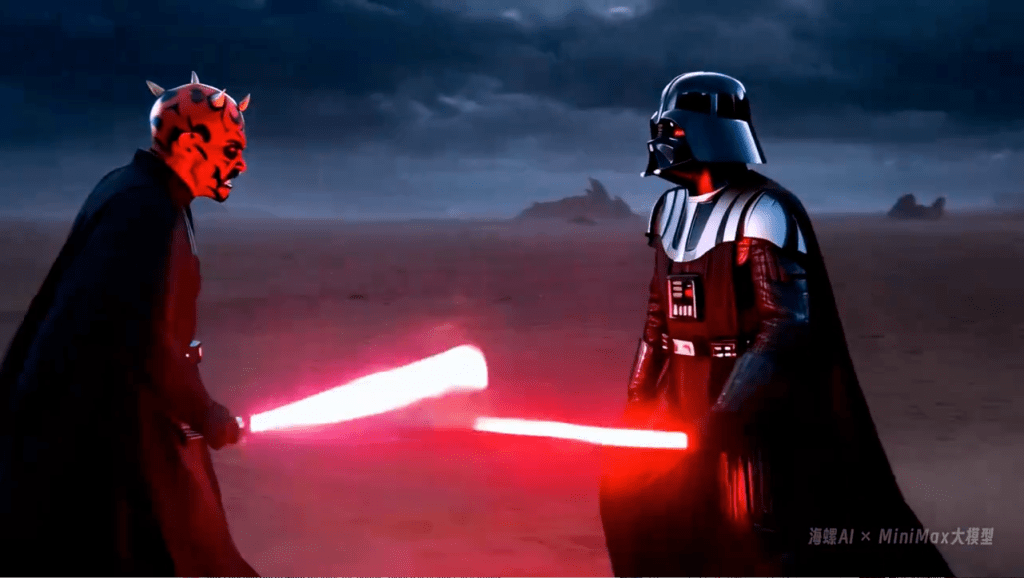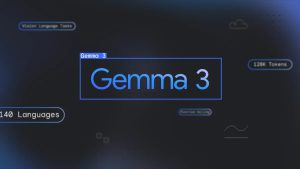MiniMax’s AI video tool can create Star Wars battles in seconds – here’s why that matters

Join our daily and weekly newsletters for the latest updates and exclusive content on industry-leading AI coverage. Learn More
A new Chinese startup has taken the artificial intelligence world by storm, capturing the attention of tech enthusiasts and industry professionals alike. MiniMax—backed by tech giants Alibaba and Tencent—has thrust itself into the spotlight with its text-to-video AI model, challenging established players and potentially reshaping the landscape of generative AI.
The company’s sudden rise to prominence began with little fanfare. MiniMax quietly released its video generation tool, dubbed “video-01,” in early September. However, it didn’t take long for the AI community to take notice. Within days, social media platforms buzzed with examples of MiniMax’s capabilities, showcasing everything from fantastical scenes to hyper-realistic human movements.
One creator, in particular, set the internet ablaze. Dave Clark, a filmmaker and AI enthusiast, posted a video featuring a lightsaber duel between Star Wars villains Darth Vader and Darth Maul.
The clip garnered over 5 million views in just 48 hours, demonstrating not only the model’s technical prowess but also its ability to capture viewers’ imagination.
“It was the first time I’ve seen the anti-AI crowd and AI crowd laughing together,” Clark noted in LinkedIn post, highlighting the universal appeal of the generated content.
Chinese AI leaps forward: MiniMax challenges OpenAI and Google
MiniMax’s emergence comes at a critical juncture in the AI industry. With OpenAI’s Sora making waves earlier this year and established players like Runway and Google’s Veo already in the market, the race to dominate AI-generated video is heating up.
What sets MiniMax apart, according to early users, is its exceptional handling of human movements and gestures – a notorious challenge in the field.
Yan Junjie, MiniMax’s founder and CEO, is not shy about the company’s ambitions. “We have indeed made significant progress in video model generation, and based on internal evaluations and scores, our performance is better than that of Runway in generating videos,” he said in a recent press conference. While such claims are difficult to verify independently, they reflect the confidence of a company ready to compete on the global stage.
The early success of MiniMax represents a significant step forward for China’s AI industry. As tensions between the United States and China continue to impact the tech sector, with restrictions on chip exports and concerns over data security, MiniMax’s breakthrough demonstrates China’s determination to remain at the forefront of AI innovation.
However, MiniMax’s journey is just beginning. The current iteration of video-01 can only generate clips up to six seconds long, a major limitation the company is actively working to overcome. Future updates promise to extend clip length and introduce features like image-to-video conversion, potentially broadening the tool’s appeal to professional creators and advertisers.
Enterprise impact: MiniMax signals shift in AI landscape
For enterprise decision-makers, MiniMax’s rapid ascent serves as a reminder of the dynamic nature of the AI landscape. As generative AI tools become more sophisticated, their potential applications in marketing, product design, and customer engagement grow exponentially. Companies that fail to keep pace with these developments risk falling behind competitors who leverage such technologies effectively.
Moreover, MiniMax’s success story underscores the importance of looking beyond established players when considering AI solutions. While giants like OpenAI and Google often dominate headlines, innovative startups from around the globe are continually pushing the boundaries of what’s possible with AI.
As MiniMax continues to refine its technology and expand its feature set, the broader implications for the AI industry are profound. The company’s ability to generate realistic human movements could accelerate advancements in fields ranging from computer vision to robotics. Additionally, as these tools become more accessible, questions about copyright, ethical use, and the potential for misinformation will likely come to the forefront of public discourse.
In the coming months, all eyes will be on MiniMax as it works to deliver on its promises and solidify its position in the competitive AI video generation market. Whether it can maintain its momentum and truly challenge established players remains to be seen. One thing is certain: the AI video revolution is far from over, and MiniMax has ensured that China will play a significant role in shaping its future.
As we witness this unfolding chapter in the AI saga, one can’t help but wonder: What groundbreaking innovation will emerge next, and from which corner of the globe? In the rapidly evolving world of artificial intelligence, the only constant is change, and MiniMax has just changed the game.









